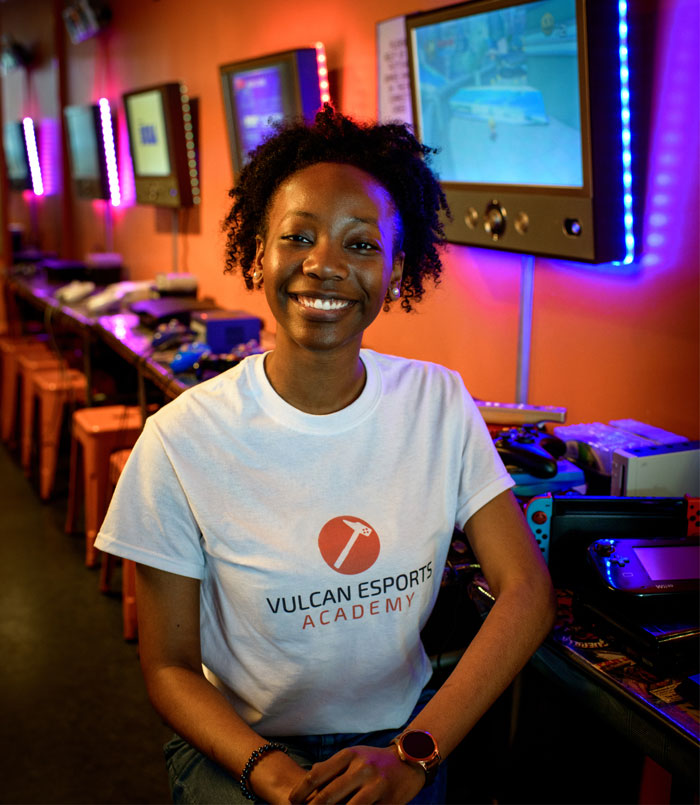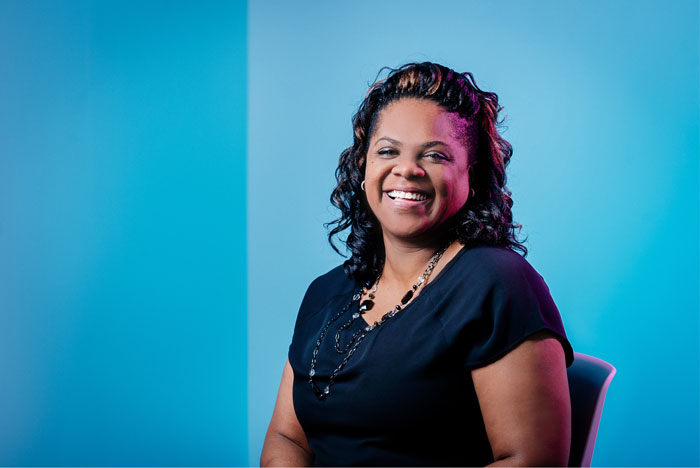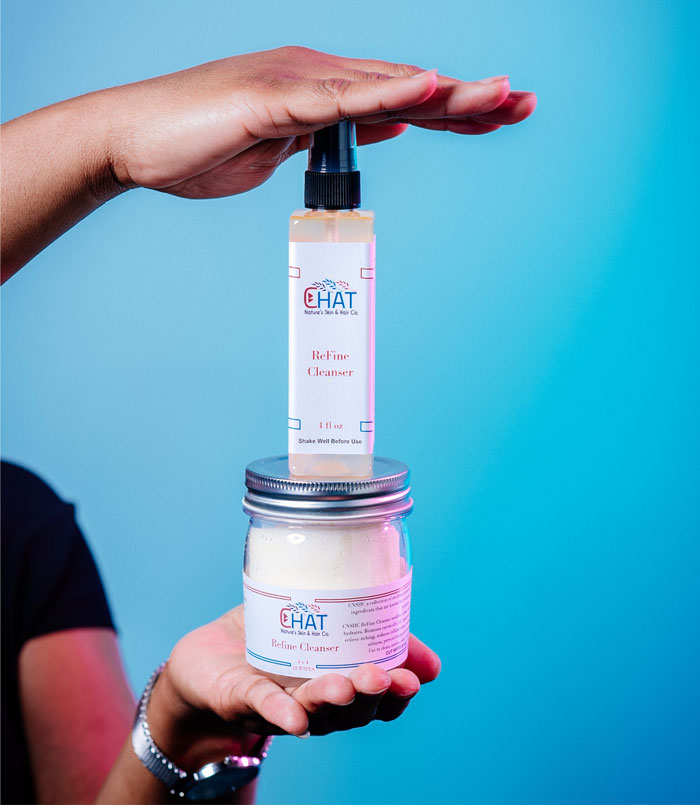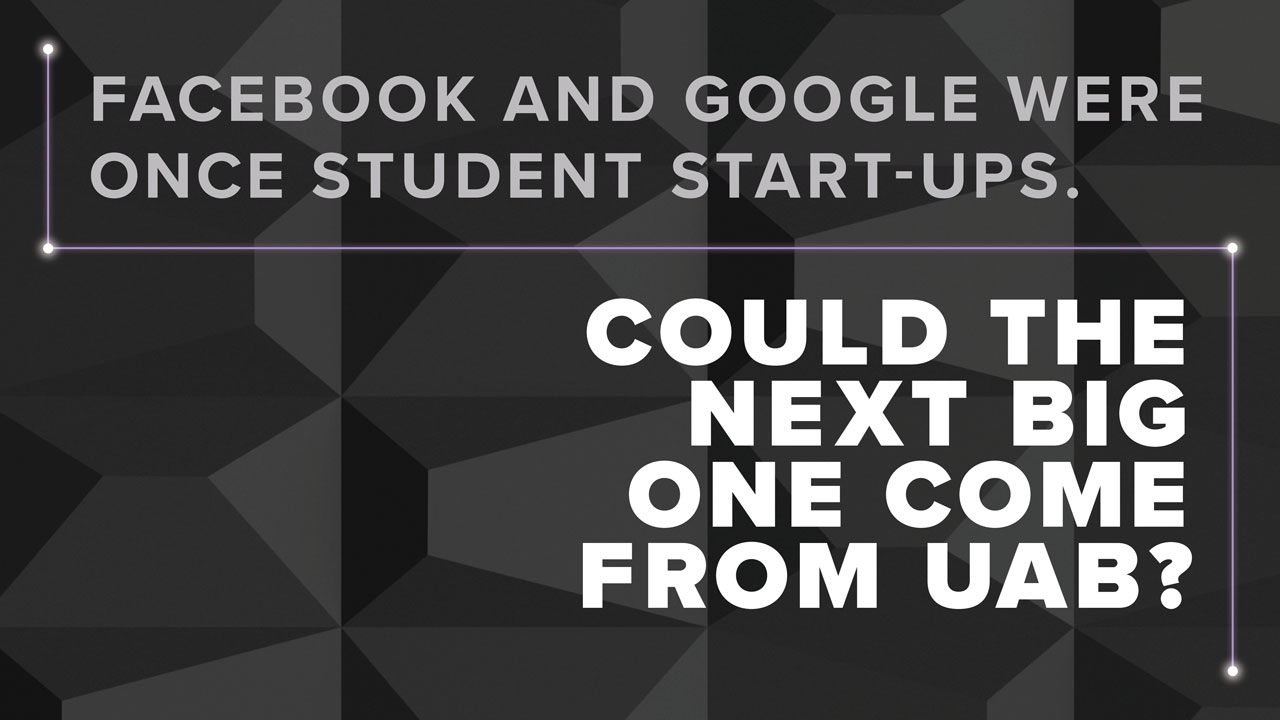Courtney Swain is a scientist. And a gamer.
The Anniston, Alabama, native grew up playing video games such as the Legend of Zelda, Super Smash Bros., and Resident Evil. She still plays, in fact, on breaks as she works toward a medical degree and a biomedical sciences Ph.D. at UAB.
That overlap of interests got Swain thinking. She had noticed growing numbers of high schools hosting teams devoted to esports—organized video-game competitions involving multiple players. Could esports be used to teach high-schoolers about science, technology, engineering, and math (STEM)? Because gaming is an inherently sedentary sport, could games be developed to motivate players to supplement their hobby with healthy habits? And could she create a new business to provide these services to students?
To answer those questions, Swain joined a bootcamp designed for UAB students with ideas for start-up businesses. Before long, the scientist and gamer also had become an entrepreneur.
 An entrepreneurship bootcamp gave student Courtney Swain (above) the knowledge and support to help launch a new company.
An entrepreneurship bootcamp gave student Courtney Swain (above) the knowledge and support to help launch a new company.
That bootcamp is part of a constellation of UAB initiatives focused on cultivating innovative new business leaders. The programs were born from student demand and are part of a national trend, with entrepreneurship programs popping up at universities across the country over the last 20 years. Students have become familiar with entrepreneurs who have changed the world around them, explains Molly Wasko, Ph.D., associate dean for research, innovation, and faculty success in UAB’s Collat School of Business. “Think about Facebook," she says. "That’s something they are close to, and they see themselves being able to do that.”
Such energy and ingenuity could transform the economy of the Birmingham region—another reason UAB is investing in entrepreneurship both in the classroom and in the community. “When you teach young people entrepreneurship effectively, they take what they are excited about and what they care about and turn that into a career,” says Patrick J. Murphy, Ph.D., UAB’s inaugural Goodrich Endowed Chair for Innovation and Entrepreneurship in the Collat School of Business. “If you do that in Birmingham, the odds are they are going to stay here. We want people to learn life-changing lessons here, graduate, and then plug into this revitalizing ecosystem.”
Level up
The free, 10-week Anvil Student Start-Up Bootcamp, housed in UAB’s Bill L. Harbert Institute for Innovation and Entrepreneurship, brings students together to grow their budding business projects. It also teaches the basics of starting a company and provides them with invaluable advice from mentors, local entrepreneurs, and experts in various fields.
When Swain joined in early 2019, she found herself among students pitching a variety of projects—everything from a new source for Peruvian cuisine to fitness-tracking software that could help reduce stroke risk. Also in the cohort were two other students interested in improving esports culture: Andrew Sluss, a junior chemistry major from Dothan, Alabama, and Jared Chesnut, a senior in computer science from Birmingham. “We had read that many parents weren’t happy about their high-school kids playing video games so much,” explains Chesnut, who graduated from UAB in spring 2019. “We wanted to bring more value to the activity.”
So the trio teamed up to hone their concept. Bringing talent and ideas together is an example of what Anvil can do, explains program director Lydia Dick. “We’re highly interdisciplinary. We welcome any area of study, any level of study.” she says. “Students who normally wouldn’t meet each other are brought together to build something great.”
The three gamers learned about the customer discovery process—finding out what potential customers, such as parents and high schools, would want from their product. They explored business models, financial aspects of business ownership, sales and marketing, and the secrets to pitching their idea successfully. They also networked with community members. “The program gave us a template to get started,” Sluss says. “Our business idea used to be muddy, and now we have a solid focus, a strong statement, and a great pitch.”
The result? Vulcan Esports Academy—a company that provides both STEM and arts content and event programming to high-school esports teams “to get students thinking beyond the game,” Swain says. Now the group is developing content that integrates gaming with education and personal and professional development. But they already have a couple of successes under their belts: Last year they hosted a robotics and coding workshop with Extra Life Birmingham, a local nonprofit, at Magic City Con. And after meeting the founders of Magic City ePlex, an esports and gaming arena, through Anvil, the students plan to help them run high-school-related esports events.
Without Anvil, “we wouldn’t have gotten nearly as much done with making connections and growing the business,” Sluss explains.
![Photo of Molly Wasko with quote: Think about Facebook. That's something [students] are close to, and they see themselves being able to do that.](/uabmagazine/images/0520-nextbigone-waskoquote.jpg) Molly Wasko, Ph.D.
Molly Wasko, Ph.D.
The impact of innovation: In less than two years, Anvil has produced 15 ventures that together have produced $2.1 million in sales, raised $1.1 million in capital investments, and won $201,000 in pitch competitions and grants. One company, consumer electronics maker Fledging, which was founded by UAB doctoral student Weida Tan and computer science alumnus Steven Robbins, secured more than $1 million from Birmingham investors in 2019 and moved into the Innovation Depot business incubator.
Hatching solutions
Nearly two years ago, UAB hired Murphy to helm the initiatives in the Collat School of Business that teach students to grow start-ups from scratch. In his previous position, at DePaul University in Chicago, he had envisioned and launched a range of entrepreneurship programs. Now Murphy is doing something similar at UAB. “My role is to form a bridge between the heart of this institution and Birmingham’s entrepreneurial ecosystem,” he says.
One of his first big new ideas is the Blazer Hatchery and Hackathon. It’s an intensive, two-month experience in two parts: the Hatchery, in which students learn entrepreneurship fundamentals from Murphy, and the Hackathon, a competition to solve a real-world problem presented by the community. As students break into teams to work on solutions, UAB provides administrative support, pitch coaching, and other resources.
In the inaugural Hackathon in 2019, sponsor Alabama Power challenged students to address underemployment by improving transportation access for underserved neighborhoods. “For many individuals, one of the biggest challenges with finding a job is finding a way to get there,” says Selina Malone, a senior majoring in economics and math. She led the team that scored first place for its idea, an online marketplace that connects potential employees with jobs based on an analysis of transportation options. The data gathered by the site can also help employers pinpoint areas in Birmingham to place their businesses where they are within easy reach of prospective employees.
Murphy is developing other new programs, including a crash course in coding basics for student entrepreneurs seeking web skills so they can better collaborate with developers on business ideas. There’s also the Birmingham Entrepreneurship Academy—not for UAB students, but for community entrepreneurs. The 12-week course teaches the basics of marketing, operations, networking, and more.
 Patrick J. Murphy, Ph.D.
Patrick J. Murphy, Ph.D.
Essential lessons
Soon UAB students will be able to major in entrepreneurship. Murphy is overseeing development of the curriculum, working with Joel Dobbs, Pharm.D., executive in residence at the Collat School of Business; Anthony Hood, Ph.D., UAB director of civic innovation; and Wasko. The school already offers an entrepreneurship minor and a graduate certificate that also serves as an M.B.A. concentration—with courses that attract hundreds of students, Wasko says.
Most of those students begin with Introduction to Entrepreneurship Management, a course that traces the life cycle of a start-up from the beginnings of an idea to a thriving business. “We teach them that a successful start-up doesn’t remain a start-up for long,” Wasko explains.
“What truly distinguishes entrepreneurship is growth, adaptivity, and error,” Murphy adds. “If you’re not trying to grow your idea or pivot it, then you’re not trying to be an entrepreneur.” In that class, students learn to be flexible, solve problems creatively, make tough decisions, work well with others, and do a little bit of a lot.
Those skills help students become successful business leaders—whether they start their own company or go to work for an established one, Dobbs says. And it’s never too late to become an entrepreneur, he adds. “The average entrepreneur isn’t a 21-year-old college drop-out wearing a hoodie,” Dobbs says. “They’re in their 40s. They usually have to work a few years, gain experience, and accumulate enough resources so they can afford to take the leap.”
Perhaps the most important lesson for eager young entrepreneurs is to avoid fixating on one idea, Dobbs notes. “We teach students not to fall in love with an idea, but to fall in love with a problem.” Problems present opportunities. Opportunities lead to solutions that can change Birmingham, Alabama, and the world.
That’s one reason teaching budding entrepreneurs is so exciting, Wasko says. “This generation is about creating opportunity."
Corps of discovery: Undergraduate and graduate students also can connect with I-Corps, a program funded by the National Science Foundation that promotes commercialization of academic research. Through I-Corps @ UAB, which Wasko directs, students work alongside UAB research faculty and staff as they learn about entrepreneurship and explore the market potential of their discoveries. They also can tap into local and national networks for infrastructure, advice, resources, and potential funding.
A start-up is born
Follow one entrepreneur's journey from initial idea to successful launch
 Keyani McNeil
Keyani McNeilTHE ENTREPRENEUR:
Keyani McNeil
Tuscaloosa, Alabama
UAB management major • Cosmetologist • U.S. Navy veteran
THE PROBLEM: As a cosmetologist, McNeil carted around a lot of products. Her clients included people of different races, ranging in age from 5 to 80, so “everyone had a different skin type and hair type,” McNeil says. “I didn’t want a counter full of products. I wanted a product to work for all of my clients.”
TRIAL AND ERROR: McNeil decided to create her own product to clean, soften, and moisturize everyone's hair. Finding the right ingredient ratios, nonirritating fragrances, and reliable suppliers was tricky, but McNeil soon had developed her own hair-care line. She also started working on skin-care products. And she was hustling—visiting local salons and shops and maintaining a loyal customer following. But McNeil wanted to take her business to the next level and turned to Anvil in 2018.
 McNeil shows off a couple of her company's products.
McNeil shows off a couple of her company's products.ADVICE FROM ANVIL: “[Anvil] helped me get organized,” McNeil says. She formed an LLC and learned about hiring an accountant and working smart with limited resources. She also met other Birmingham entrepreneurs, including Yazmin Cavale, cofounder of GLOW, a start-up that brings beauty services to customers on demand. “A lot of stuff finally clicked,” McNeil says.
POSITIVE CHANGES: Anvil mentors asked McNeil why she had separate lines for hair and skin care. And Cavale noted that her product label looked “busy,” McNeil recalls. “For an all-natural product, I should have a simple design.” She also merged her products into one line: CHAT Nature’s Skin & Hair Company.
EARLY SUCCESS: UAB named McNeil its 2019 Student Innovator of the Year. And she officially launched CHAT Nature’s Skin & Hair Company in 2020. McNeil recalls laughing when a client initially suggested she make her own products. "But here I am,” she says. “I did it.”
FUTURE FOCUS: As she grows her company, McNeil wants to help other budding entrepreneurs. She hopes to establish a scholarship and “hire college and high-school students and pay them so they can live and go to school, but also have a resource to learn from, like [Anvil] was for me."
• Learn about the opportunities for learning, discovery, and more in the Collat School of Business and the Bill L. Harbert Institute for Innovation and Entrepreneurship.
• Help create new generations of entrepreneurs who can boost the economy of the Birmingham region with a gift to the Collat School of Business and the Bill L. Harbert Institute for Innovation and Entrepreneurship.


